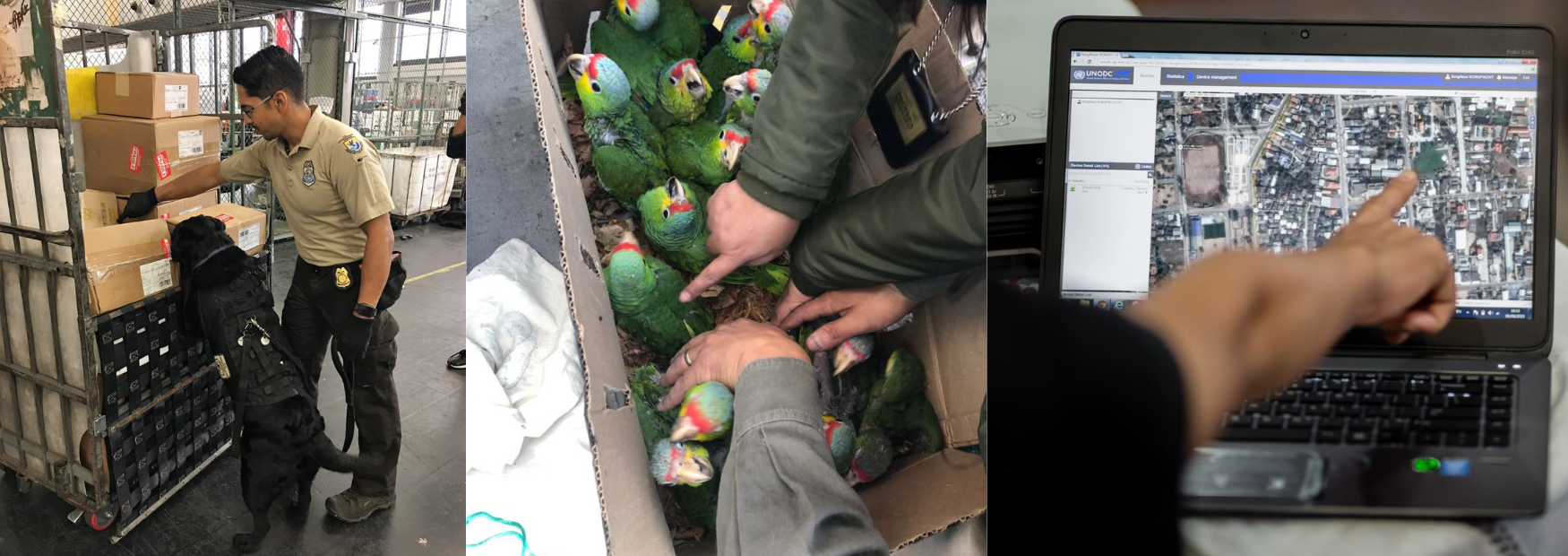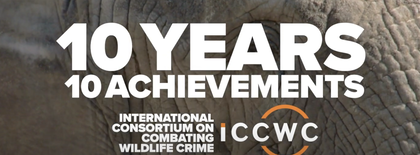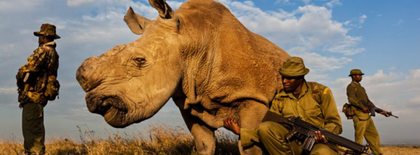ICCWC works with officials from across the criminal justice system in countries around the world, to strengthen these systems and provide authorities with coordinated support to combat wildlife and forest crime.
ICCWC Vision 2030 and Strategic Action Plan 2023 - 2016
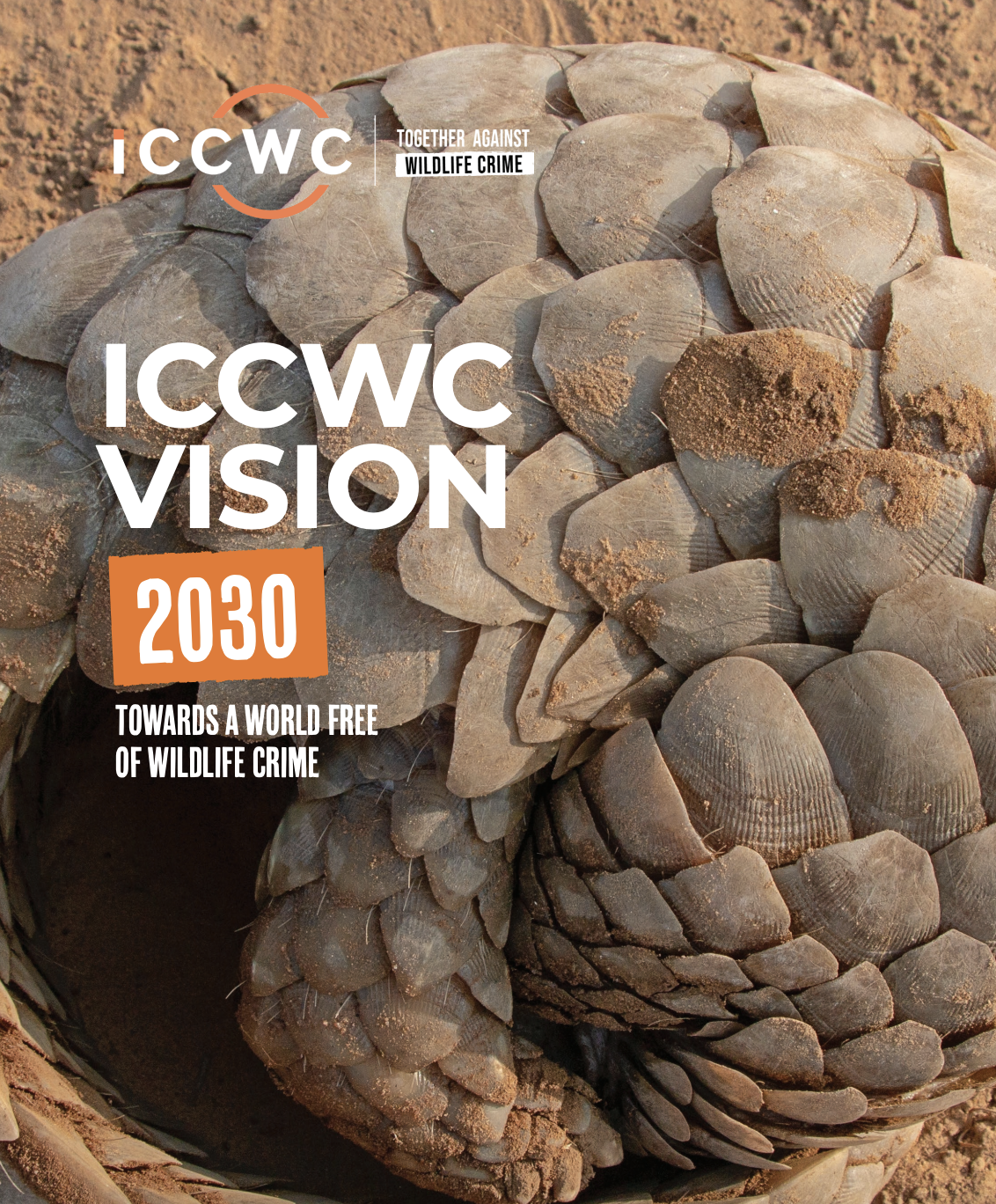
The ICCWC Vision 2030 was launched at the 19th meeting of the Conference of the Parties to CITES (CoP19). It was developed based on successes achieved and lessons learned through the implementation of the ICCWC Strategic Programme 2016-2020, and taking into consideration inputs received from CITES Parties and a broad range of stakeholders.
The Vision identifies five critical ICCWC outcomes which recognize the importance of both proactive and reactive responses to combating wildlife crime:
a) reduced opportunity for wildlife crime;
b) increased deterrence of wildlife crime;
c) increased detection of wildlife crime;
d) increased disruption and detention of criminals; and
e) evidence-based actions, knowledge exchange and collaboration, as a basis for the achievement of the first four outcomes and to drive ICCWC’s impact.
The five outcomes comprise 13 sub-outcomes which ICCWC will focus its interventions. This outcome framework provides a roadmap that will be implemented through two 4-year Strategic Action Plans (2023-2026 and 2027-2030). The Strategic Action Plans outline the approaches that ICCWC will take to achieve the five outcomes identified in the Vision and indicate the types of activities that ICCWC could deliver against each approach.
Previous programmes and strategies
ICCWC Strategic Programme 2016-2020 (extended until 2023)
The ICCWC Strategic Programme included a set of concrete priorities and activities aimed at reducing poaching and trafficking in wildlife and forest products. It included 21 activities and 57 related sub-activities, developed based on a detailed analysis of activities conducted, and a review of priorities, recommendations and requests by the ICCWC Senior Experts Group and partner agencies.
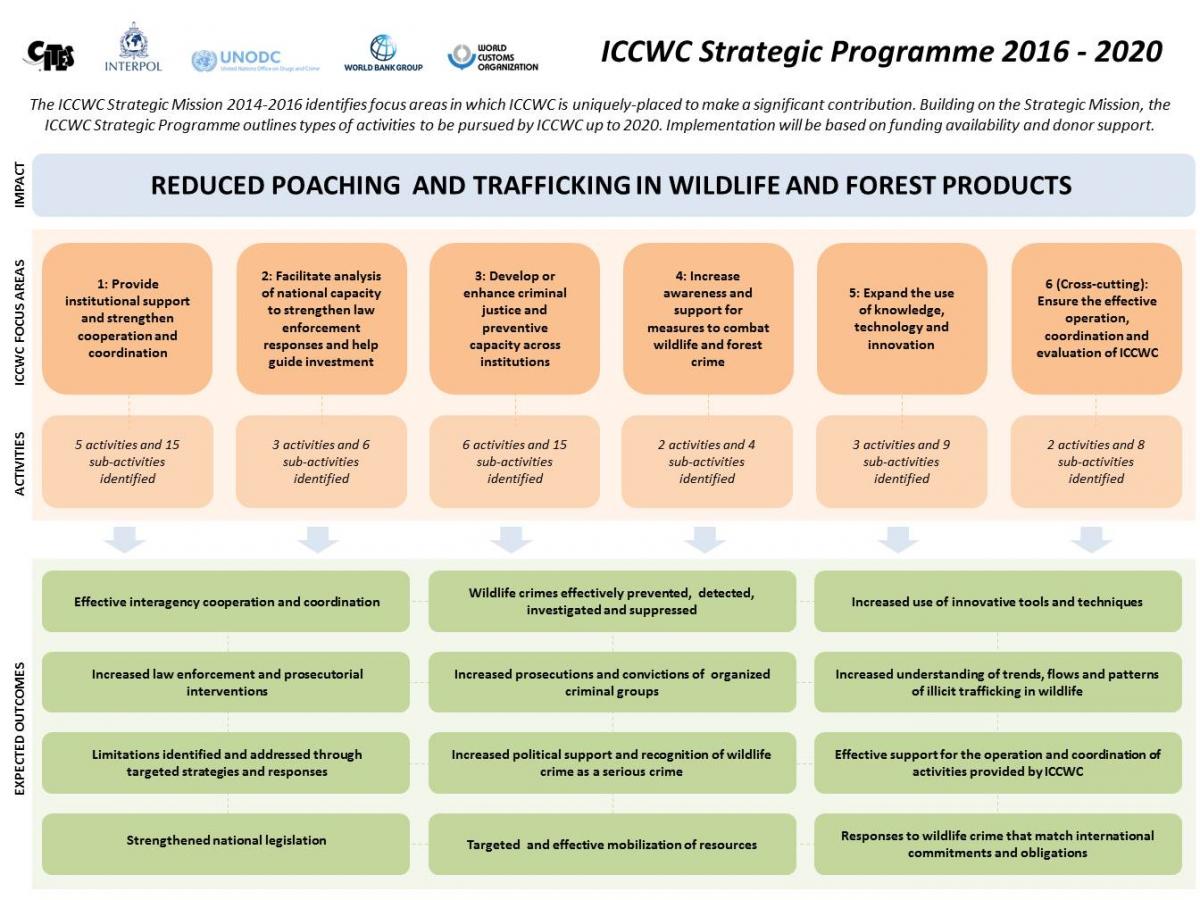
ICCWC Strategic Mission 2014-2016
The ICCWC Strategic Mission 2014-2016 identified a number of focus areas or fields in which ICCWC was at the time uniquely-placed to make a contribution based on the diverse technical expertise, regional networks and on-ground experience of the five organizations.
The mission was developed based on the Letter of Understanding, which provided a guiding framework for the implementation and delivery of ICCWC activities since the formation of the Consortium in 2010.
Related content
Focus stories
10 years, 10 achievements During its first decade (2010-2020), ICCWC supported the initiatives of countries that achieved a wide range of impactful outcomes. Read more here. Success Stories
Who we are
The International Consortium on Combating Wildlife Crime (ICCWC) is the collaborative partnership of five inter-governmental organizations with complimentary and specialized mandates through which they are uniquely placed to collectively deliver a range of comprehensive interventions to strengthen criminal justice systems and build long-term capacity among authorities to address wildlife crime...
